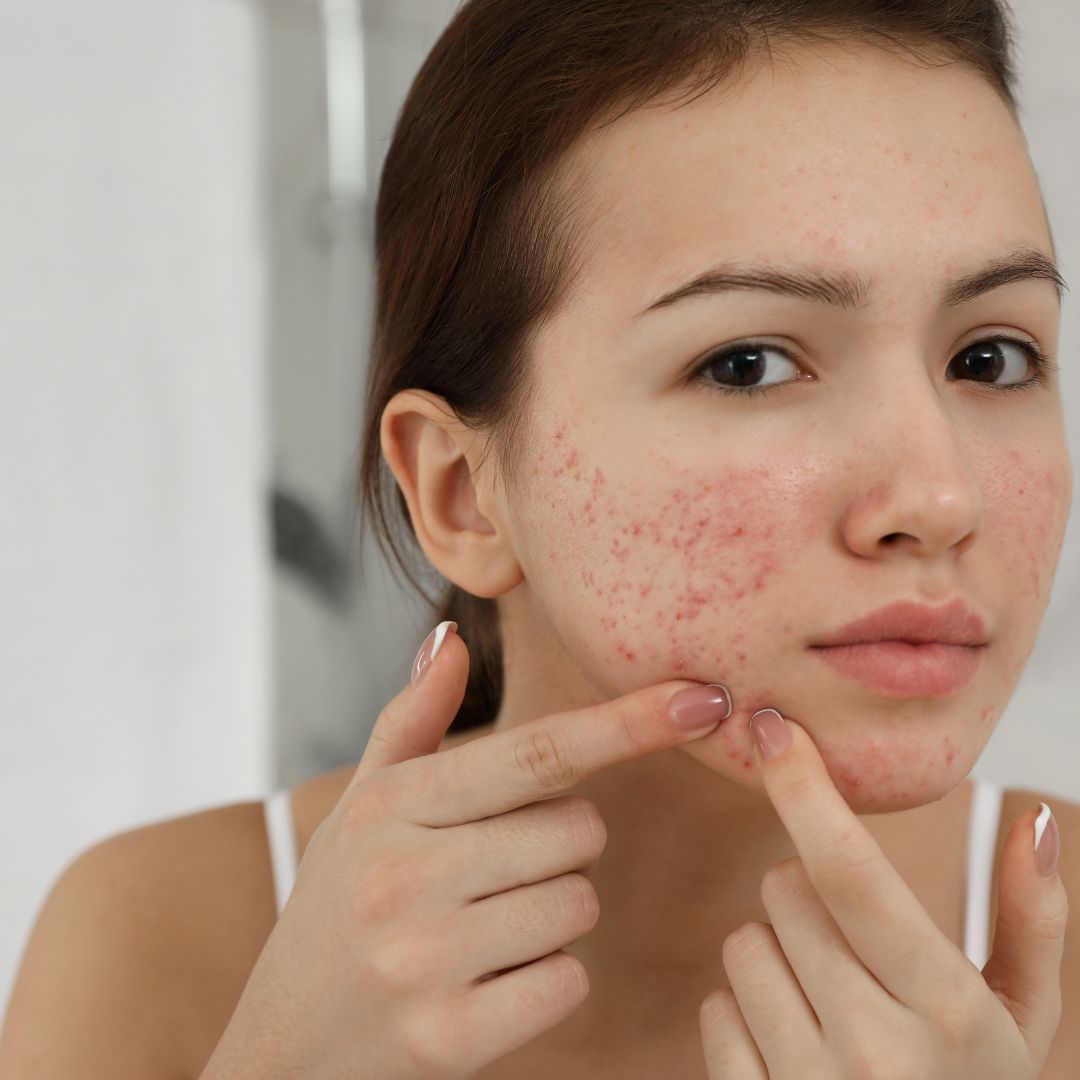By Dr. Peter Klapper Ph.D.
As a teenager, your body experiences hormone changes that tend to affect your skin—learn more about how acne develops in our article All About Acne—and during a period in your life where your appearance matters, it can be upsetting when you experience an acne breakout.
Even the mildest of acne can impact a teenager’s self-esteem, so it’s important to get it under control. That said, to celebrate “Healthy Skin Month” this November, we want to focus on how teenagers can get their acne not only managed but how to proactively avoid breakouts. Remember, acne doesn't just affect teenagers; adults can also struggle with it—read more in Adults and Acne: Why You Still Can Have Blemishes into Your 20's.
1. Take Acne Seriously
As we stated above, self-esteem is greatly impacted by acne. It’s imperative to get it under control before a teen’s face becomes the brunt of a joke such as “pizza face.” Yes, skin blemishes are normal such as blackheads and pimples, but that’s not a reason to not institute healthy skin practices.
And if your teen’s skin has already flared-up to the point of leaving acne scars, know that there are treatments to help that, too. For instance, our acne “Scar Treatment” helps dissolve scar tissue safely and effectively while nourishing and moisturizing damaged skin.
2. Treat Acne Immediately
Once acne has been taken seriously, it’s also important to treat it immediately - whether that is seeing a dermatologist for medication if your teen’s acne has become aggressive or by implementing a skin care routine that includes the right skincare products.
This can be done by treating the problem areas upon the flare-up. Our “Acne Pimple Control Treatment” is great for teens, mess-free and easy to apply. This roll-on application combines the power of homeopathy with soothing essential oils that works systemically to help the body clear acne, pimples, zits blackheads, back acne, and seborrhea naturally.
3. Wash Your Skin
A good rule of thumb is to wash your skin twice daily to rid your body of any dirt and oil buildup. Work well around your problem areas and it should be applied with the fingertips and rinsed with lukewarm water.
4. Let Your Teen Take Charge
According to a recent study, dermatologists found that parents who constantly reminded their teens to take their acne medication had the opposite effect. The reminders felt like “nagging” and inadvertently caused the teens to use their treatment less often.
5. Avoid Excessive Scrubbing
Scrubbing the face excessively can cause more harm than good. Over the counter facial scrubs and face masks can irritate the skin and cause worse acne.
6. Avoid Touching Your Skin
We get it. If you see a pimple, you want to pop it. As hard as it is, don’t touch your face. The more you pick at your face and problem areas, the more bacteria you’re spreading on your face that can cause infections, more acne and scarring.
7. Manage Stress
When you’re stressed, your body feels it - especially your skin. Stress can cause your skin to flare-up, so it’s crucial to keep it under control. This can be done by exercising, getting outside, talking out problems, making time for fun activities and getting enough rest. You can use our natural stress and anxiety relief Calm Mood for Kids ages 3-12 for those preteens or our adult version for older teens.
8. Protect Your Skin from The Sun
The sun can impact your skin in many ways, so it’s always important to wear sunscreen. If your teen is struggling with acne, it can also be worsened by the sun because some medications make the skin more sensitive.
9. Shower After Sweating
If your teen is active, it’s important that they keep up with good hygiene. Oil production is increased by sweating, especially if a hat or helmet is being worn. By using shampoo, it can help decrease the oils that buildup in the hair and hairline.
10. Be Aware of What You Put on Your Skin
Whether it’s makeup products or the latest Tik-Tok mayonnaise trend, what you put on your skin has consequences. Always look for products that are oil-free and noncomedogenic, otherwise known as products, that were formulated to not clog pores.
For natural remedies that can help, consider reading How Do Acne Home Remedies Work?. Also, don't overlook acne in other areas like the back; our Bacne 101: Tips for Dealing with Back Acne provides useful tips. If acne persists, exploring treatments like Treating Adult Acne with Certified Organic Medicine may be beneficial. In severe cases leading to scarring, learn how to address it in How To Treat Scars Caused By Cystic Acne.


